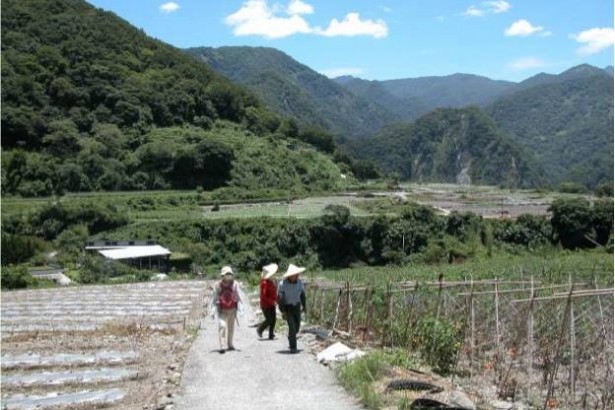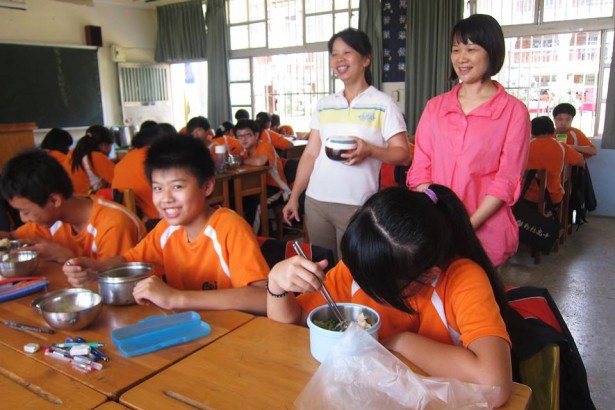Fubo abattoir cattle irrigation, inspection bureau fined 300,000
Share225 + 15 Tweet2 EmailShares 232
The Fubo slaughterhouse in Taishan District, New Taipei City, was kicked and exploded by Apple Daily yesterday. A water pipe was inserted after the cattle were slaughtered and skinned, and water was filled to increase the weight. The Council of Agriculture interviewed the operators at 11:30 today, although the operators argued that they were "washing their bellies." however, Lin Jinzhong, head of the meat inspection team of the Prevention and Inspection Bureau of the Council of Agriculture, said that as long as the carcass was washed with a water pipe, it was impossible to insert the water pipe into the meat after viewing the four films of Apple Daily. It was determined that at least two cattle had been watered at the Fook Po slaughterhouse, with a total fine of 300000, and the part suspected of unjust enrichment and fraud was transferred to the judiciary for investigation.
In June 2012, the Fubo slaughterhouse was kicked by animal protection groups and fined 75000 yuan. in September of the same year, the Prevention and Inspection Bureau again caught Fubo who did not apply for slaughtering hygiene inspection and wanted to secretly slaughter in the absence of a veterinarian, imposing a fine of 100000. However, the current "Animal Husbandry Law" stipulates that operators can continue to operate as long as they make improvements within the time limit, so although Fubo has a lot of criminal record, the Council of Agriculture is still unable to withdraw the license. Lin Jinzhong promised that in the future, he would study and amend the laws and regulations to increase the punishment of operators.


Subsidize the slaughterhouse to install monitors and miss the shipping area
This incident highlights the fall of the meat inspection checkpoints of the Council of Agriculture. From slaughtering to listing, a cow must go through a resident veterinarian and four monitors, and the prevention and inspection bureau will send staff to check it every year, and the county and municipal government will send additional animal protection inspectors.
According to information provided by the Council of Agriculture to legislator Lin Daihua on June 3, between October 2012 and March this year, animal protection inspectors inspected a total of 283 cattle slaughterhouses and found no violations. Animal protection groups and personnel of the Prevention and Inspection Bureau identified four cases of inhumanity or irrigation.
At present, the Council of Agriculture subsidizes 14 slaughterhouses in Taiwan, setting up four monitors each in the fastening area, the peeling area, and the humane fainting area, but the Council of Agriculture did not expect that the carcass could also be irrigated. The irrigation was in the shipping area after slaughtering, and the monitor did not get it, nor did the resident veterinarian find it. Lin Jinzhong said that in the future, operators will be required to install additional monitors in the shipping area, and factory-based veterinarians will be urged to inspect the shipping area.
The activist society calls for comparison with Europe and the United States, rotating to stay on the spot to check veterinarians.
In addition, the agency held a press conference this afternoon, saying that the Council of Agriculture budgeted 380 million this year and last year respectively for the meat hygiene inspection system and hired veterinarians to inspect slaughtering operations in the factory, but veterinarians did not rotate all the year round, so they may form an accomplice relationship with the operators, or dare not say anything under pressure from the operators. Although monitors were installed in 2012, the resident veterinarians were still inspecting the images, which is tantamount to bribing a person to pass the border.
Chen Yumin said that in order to prevent malpractice in Europe and the United States, slaughterhouse veterinarians must be rotated, and the monitors are connected to the central authorities every day to be inspected by the central authorities. In addition, a full-time "economic animal welfare inspector" has been set up. The Council of Agriculture should publish the records of monitor access at the Fauber slaughterhouse, and follow the above-mentioned foreign system, and should also investigate whether veterinarians break the law as soon as possible.
Lin Jinzhong responded that in addition to local animal protection officers and personnel of the Prevention and Inspection Bureau, additional personnel from government units will be sent to the slaughterhouse to inspect irregularly, but the rotation of veterinarians involves the "Labor Law." at present, veterinarians are contracted by the Central Animal production Association on the committee of the Council of Agriculture, not civil servants, and hasty rotation will harm the rights and interests of workers, but we can ask the livestock industry association to discuss relevant improvement measures.
In addition, Lin Jinzhong said that although veterinarians are not qualified as civil servants, their work is to "perform official duties," so if they accept bribes, they will be punished more severely than civil servants.
The Society for Animal and Social Studies calls for refusing to eat Taiwan cattle.
Share225 + 15 Tweet2 EmailShares 232
- Prev

The first example of a national park, the Taroko Xibao settlement is organic.
The first example of a national park, the Taroko Xibao settlement is organic.
- Next

Agreement with food merchants Xinshe senior high school students eat non-toxic ingredients
Agreement with food merchants Xinshe senior high school students eat non-toxic ingredients
Related
- A course of planting techniques and methods on how to grow carrots
- How to plant the latest tulips?
- Is it better to pick tea in the morning or in the afternoon? When is the best time for tea to be picked? what is the third or fifth tea?
- Launch Yuanxiao Happy combination Haocha + Tea Yuan healthy Taste
- Penghu Tourism "Fireworks 20 Parade with You"
- 2022 West Lake Happiness holds "Digital Revitalization Voucher" and draws iphone13 and laptop.
- Banqiao Fuzhou social houses are designed to change start-up combined with police elimination to create a safe and livable environment
- The convenient measure of "mechanical weeding" in Xinbei has been abused and the Agriculture Bureau has imposed heavy penalties on the illegal land consolidation.
- Changgeng University Joins Hands with Four Memory Factories to Rescue Memory Talent Shortage
- The list of Taiwan's top 100 MVP managers is listed by the Director-General of the Farmers' Association of Sanxia District.

